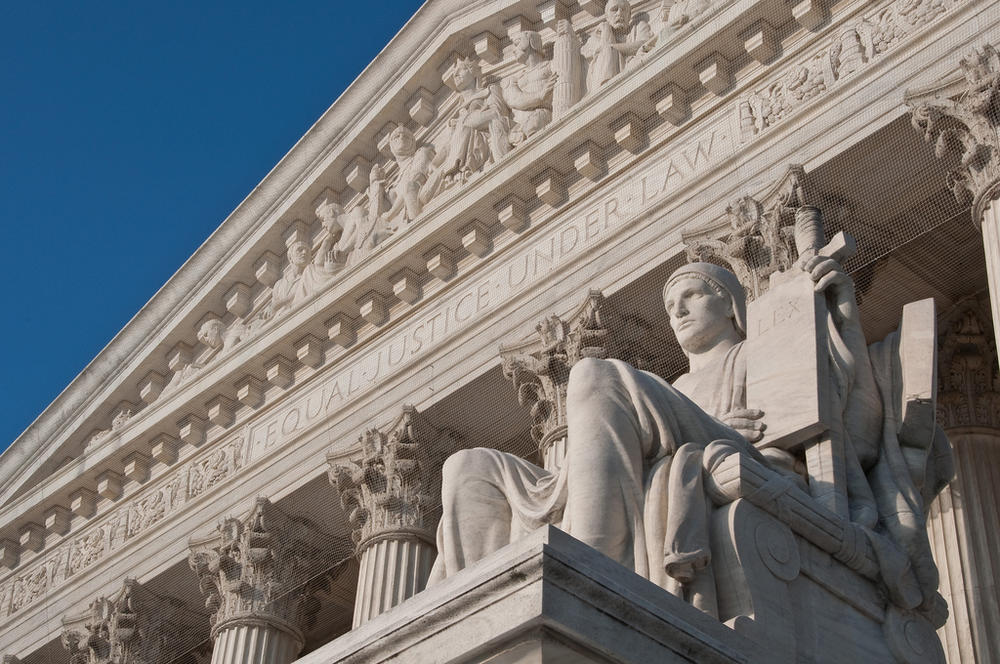
Section Branding
Header Content
Let Students Be The Judge! Supreme Court Cases And Civics Education
Primary Content

Civics and government teachers don't want to tell a dirty secret, so I will. Students consistently ask questions about legal hypotheticals -- many of them likely based in reality. "But wait Mr. Kuenlen," (it's pronounced KEN-LEN) a student once asked me. "Administrators can't just search my backpack or my locker without my consent, can they? There's an amendment that protects against that, right?" Uh oh.
Timeout for a teachable moment. Rather than act as informal counsel for our young defendant, a teacher can turn the learning over to students by offering cases that cover just the types of subjects civics students are most interested in -- their rights. Every student has an example of "a friend" who they think had their rights violated. What better springboard than the often controversial cases of the Supreme Court to connect the real world to the legal one? The New York Times Learning Network published a great article describing ten Supreme Court cases all teens should know. It is an excellent place to start. And yes, administrators CAN search a student's things in some instances. See Tinker v. T.L.O. (1985).
Here's an idea to get things moving. Start with giving students an edited summary of the case. A few basic questions could be on their "docket" to answer with a Constitution handy to investigate: can the government constitutionally engage in that activity? What article permits or restricts such action? Is there an amendment to the Constitution that protects the behavior? Without knowing the outcome of the case, have groups judge what they think the verdict should be. Then provide an excerpt from the majority opinion of the court to half the group and the dissenting opinion to the other half. Allow students to discuss whether or not they think the decision was constitutional and have them cite articles, amendments, or previous cases as evidence. You could even introduce some annotation here.
For more ideas on bringing court cases into the classroom:
- The Bill of Rights Institute posted a blog that has a wonderful introduction to using cases in the classroom.
- The Annenberg Classroom has a great lesson with a large list of potential cases.Their video series also allows teachers to go in depth with specific rights linked to famous cases.
- Street Law has a comprehensive background to get you started and ten landmark cases with a guide to analysis.
- PBS's program The Supreme Court has an interactive website with loads of resources.
- Justice Teaching from the Florida Supreme Court is full of potential cases, lesson plans and starters, as well as different ways of looking at court cases.
Already know your rights? Tell us what strategies you use to teach Supreme Court cases in the comments section!
Civics and government





